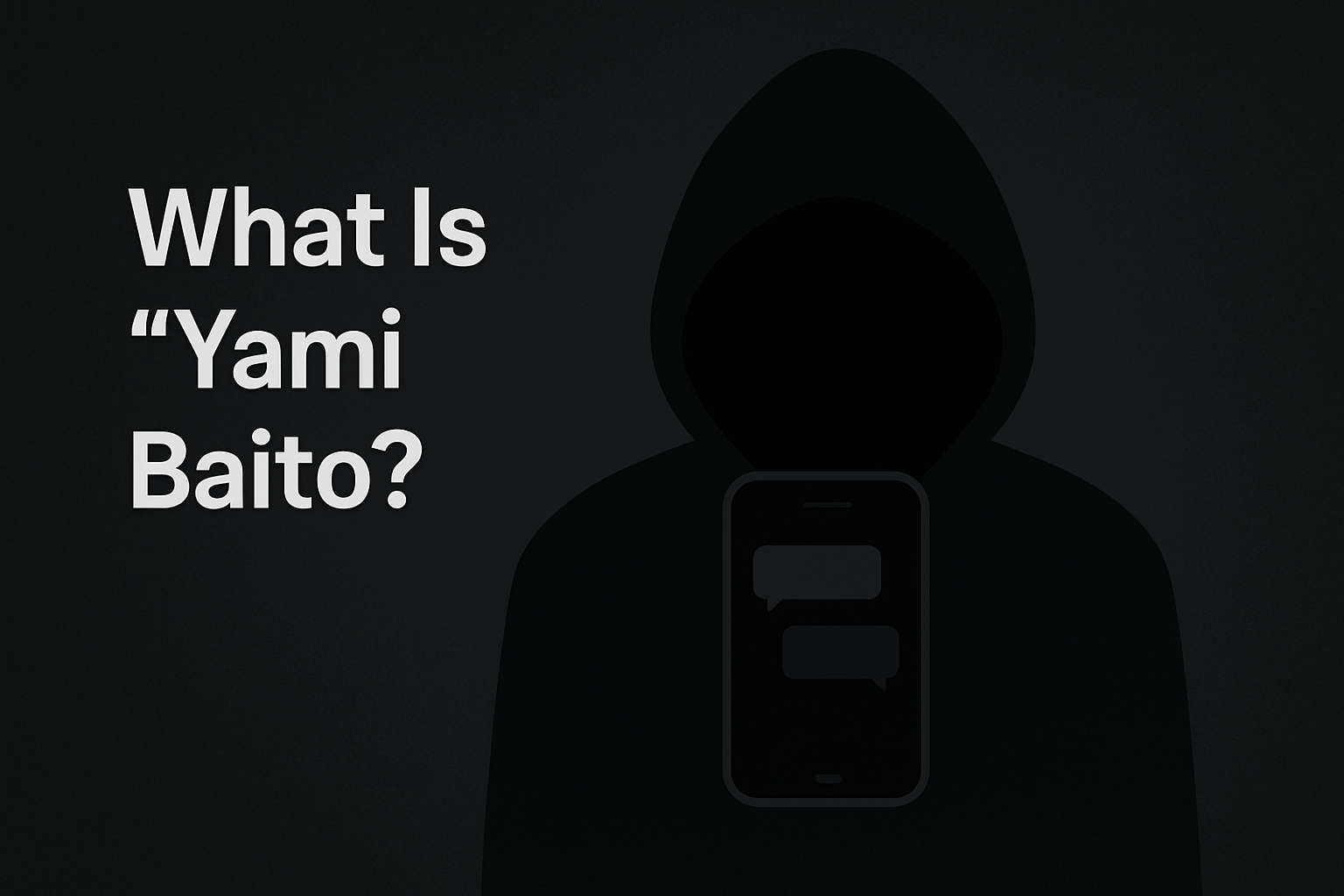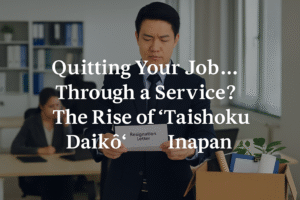When you think of part-time jobs in Japan, you might picture students working at cafes or convenience stores.
However, there’s a darker side that has been making headlines recently: “Yami Baito” (闇バイト).
Let’s take a closer look at what this term means — and why it’s a growing concern in Japan.
What Does “Yami Baito” Mean?
“Yami Baito” literally translates to “dark part-time job.”
It refers to illegal, dangerous, or morally questionable work, often involving:
- Fraud schemes
- Robbery assistance
- Drug trafficking
- Online scams
- Money laundering
Unlike regular part-time jobs, Yami Baito jobs are usually off the books, high-paying, and illegal.
Many of these jobs are advertised on anonymous social media accounts or private messaging apps, often using phrases like:
- “Easy work, high income!”
- “No experience needed, quick cash!”
Why Is It a Big Problem?
Recently, Japan has seen a surge in crimes linked to Yami Baito, especially youth involvement.
- Some high-profile robbery cases and fraud rings were carried out by teenagers and young adults recruited through Yami Baito ads.
- In many cases, participants didn’t realize the full extent of the criminal activity until they were deeply involved — by then, it was too late to back out.
In 2023 and 2024, police reported record numbers of arrests related to organized fraud, often involving young “part-time” workers.
How Do People Get Trapped?
Recruiters often use clever tactics to lure people in:
- Anonymous job postings promising fast cash.
- Minimal information given upfront to avoid detection.
- Gradual escalation — starting with simple tasks (like picking up a package) before moving into more serious crimes.
Because these offers seem “casual” at first, many young people don’t realize they’re stepping into illegal territory.
Real Risks of Yami Baito
Getting involved in Yami Baito can lead to serious consequences:
- Criminal charges — even first-time offenders face heavy penalties.
- Physical danger — confrontations during crimes like robberies can turn violent.
- Social stigma — a criminal record can ruin education and job prospects.
In some tragic cases, those involved have been victims of violence themselves, targeted by criminal organizations when things went wrong.
How Japan Is Responding
The government and police are stepping up efforts to combat Yami Baito:
- Running awareness campaigns targeting students.
- Monitoring social media recruitment activities more closely.
- Providing educational programs in schools to teach young people how to recognize and avoid illegal job offers.
Final Thoughts
“Yami Baito” is a chilling reminder that easy money often comes with hidden dangers.
While the internet and social media have made it easier than ever to find job opportunities, they have also opened the door for exploitation.
If you’re living in Japan — or anywhere — always be cautious about suspicious job offers.
When in doubt, trust your instincts, and stay away from anything that sounds too good to be true.



